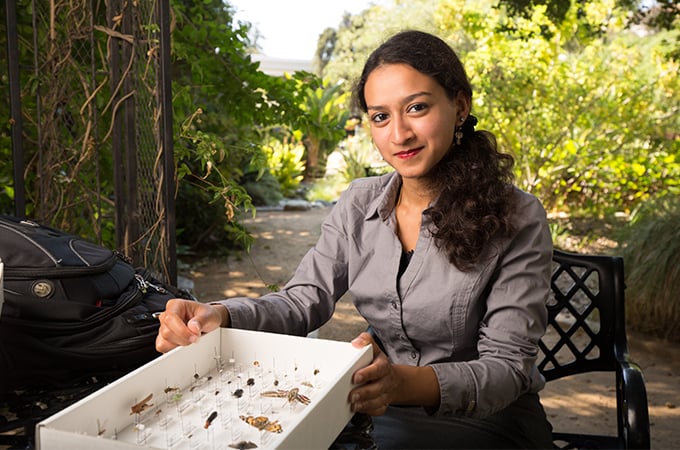Human-animal studies (HAST) began at the University of Redlands 20 years ago as a four-week May Term course. It has grown in popularity ever since, and U of R is now offering College of Arts and Sciences students the opportunity to major in the field.
“HAST is an interdisciplinary field that examines the complex and multidimensional relationships between humans and other animals,” said Psychology Professor Catherine Salmon, program director. “It consists of work across disciplines in the social sciences, the humanities, and the natural sciences.”
Launching HAST as a major puts U of R at the forefront of education in the field. Currently, only eight other institutions in the United States offer HAST majors to undergraduates, said Philosophy Professor Kathie Jenni, one of the program’s architects and proponents; with the HAST major launching in the fall 2021 semester, the U of R will be the only one on the West Coast. Yet the scholarship of and interest in HAST are rapidly growing due to concerns about climate change, animal welfare, and an increasing number of pet owners.
“We see the major as a distinctive program,” said Jenni, “that can attract students to the U of R who otherwise wouldn't have considered us and who hope to enter one of many animal-related careers. Every year students have told us that they came to the U of R because we offer [HAST] and their other top-choice schools did not.”
Empowering students with knowledge
That is why Kaila Ferrari ’17 chose Redlands. “I didn't see other universities offering classes that covered animal ethics and the human-animal relationship. I knew I wanted to do something that related to wildlife conservation, and it seemed important to understand the field from both a science and human-impact background.”
Now the senior digital content specialist at the International Fund for Animal Welfare — a wildlife conservation and animal welfare organization — Ferrari says she believes the new HAST major is an “incredible addition” to U of R’s academic offerings, and encourages new students interested in wildlife conservation, animal welfare, or animal care to take HAST courses.
“The minor gave me an upper-hand when applying for summer internship opportunities and empowered me with knowledge that I use today in my career,” Ferrari said.
Brenna Dolen ’21—who would have chosen the major if available during her time at the U of R—said the HAST minor, which the U of R has offered since 2008, offered a broad course of study that has “well-prepared” her for pursuing a master’s degree in public administration. “[The HAST major] will allow students to explore many fields, discover what is best for them, and then tailor their courses to their learning goals,” Dolen said.
Many HAST-related jobs
Jenni said many pre-veterinarian students benefit from interdisciplinary exposure to broader social, ethical, and psychological issues related to humans' interactions with other animals.
Meghan O’Sullivan ‘17, now a doctor of veterinary medicine, agreed. “I learned a lot about the human-animal bond that greatly benefits me in my veterinary career today. It opened my eyes to bigger issues going on in the animal kingdom across the seas and in our own nation, and it helped me understand the viewpoint and expectations that many owners today take on their pet — which is crucial for my line of work.”
The list of HAST-related jobs is long, Salmon said, and includes work in administration, fundraising, marketing, outreach, humane or environmental education, animal protection, development, policy, research, animal-assisted therapy, and more.
Salmon said, at its heart, HAST is about the relationships between us and non-human animals — and these relationships play essential roles in our lives.
“For some people, animals, particularly pets, play a significant emotional and social role in our lives. For some people, animals are a source of fear or disgust (which can be driven by physical danger or concern about disease, etc.), and for others they are a source of nutrition. But all of us engage in some sort of relationship with various non-human animals over our lives. HAST is becoming a major force in understanding these relationships and hopefully will lead to more net positive relationships across the board.”
Learn more about human-animal studies at the University of Redlands.






